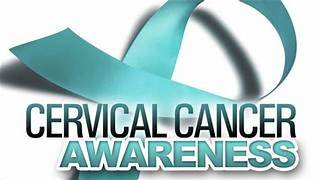Addressing Cervical Cancer in Young Women: Risks, Signs, and Preventive Measures

Though frequently linked to older age, cervical cancer can strike women of any age, including young adults. Though less prevalent in younger women, early discovery and efficient treatment depend on knowing the risks, symptoms, and preventive measures.
The subtle aspects of young women's cervical cancer will be covered in this blog, along with risk factors, warning indicators, and preventative steps.
Risks:
While persistent infection with some human papillomavirus (HPV) strains usually causes cervical cancer to develop over time, a number of variables can raise the risk of the illness in young women:
- HPV infection: Cervical cancer is particularly linked to certain HPV strains, namely HPV-16 and HPV-18. Generally speaking, sexual contact is how HPV is spread.
- Early sexual activity: Having sex when you're young raises your chance of contracting HPV and hence developing cervical cancer.
- Regular screening: Young women who do not have regular cervical cancer screening, including Pap or HPV tests, run the risk of missing the disease's early warning signals.
- Smoking: Especially in conjunction with HPV infection, smoking has been associated with a higher risk of cervical cancer.
Signs:
The need of routine screenings is highlighted by the possibility that cervical cancer may not show any signs in its early stages. Still, as the illness worsens, young women could have the following signs:
- Abnormal vaginal bleeding, including that which occurs during menopause, after sex, or between periods
- Pelvic pain or discomfort
- Unexplained weight loss
- Changes in bowel or urine habits
Importantly, these symptoms can also be linked to other benign diseases, hence seeking appropriate assessment and diagnosis from a medical professional is necessary.
Prevention:
A multifaceted strategy aiming at lowering HPV exposure and encouraging early diagnosis through screening is needed to prevent cervical cancer in young women:
- HPV vaccination: The HPV vaccine works incredibly well to shield against infection with the high-risk HPV strains that cause the majority of cervical cancer cases. Though vaccinations can be given up to age 26, it is advised for both boys and girls starting at age 11 or 12.
- Proper sexual behaviours: By using condoms consistently and having fewer sexual partners, one can lower their chance of contracting HPV.
- Regular screenings: Pap tests, HPV testing, or a combination of both should be part of the routine cervical cancer screenings that young women should have in accordance with advised standards.
CONCLUSION
Young women's cervical cancer is a major health issue that has to be addressed and aggressively prevented and detected. Young women can take charge of their cervical health and lower their risk of getting this possibly fatal illness by learning about the dangers of HPV infection, identifying possible symptoms of cervical cancer, and implementing preventive measures like vaccination and routine screenings.
Fighting cervical cancer and guaranteeing better health outcomes for next generations need empowering young women with information and access to preventive healthcare services.
What's Your Reaction?



















